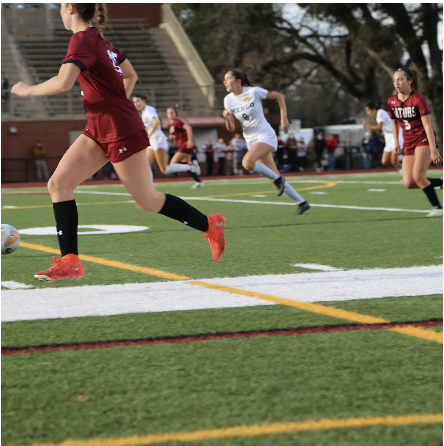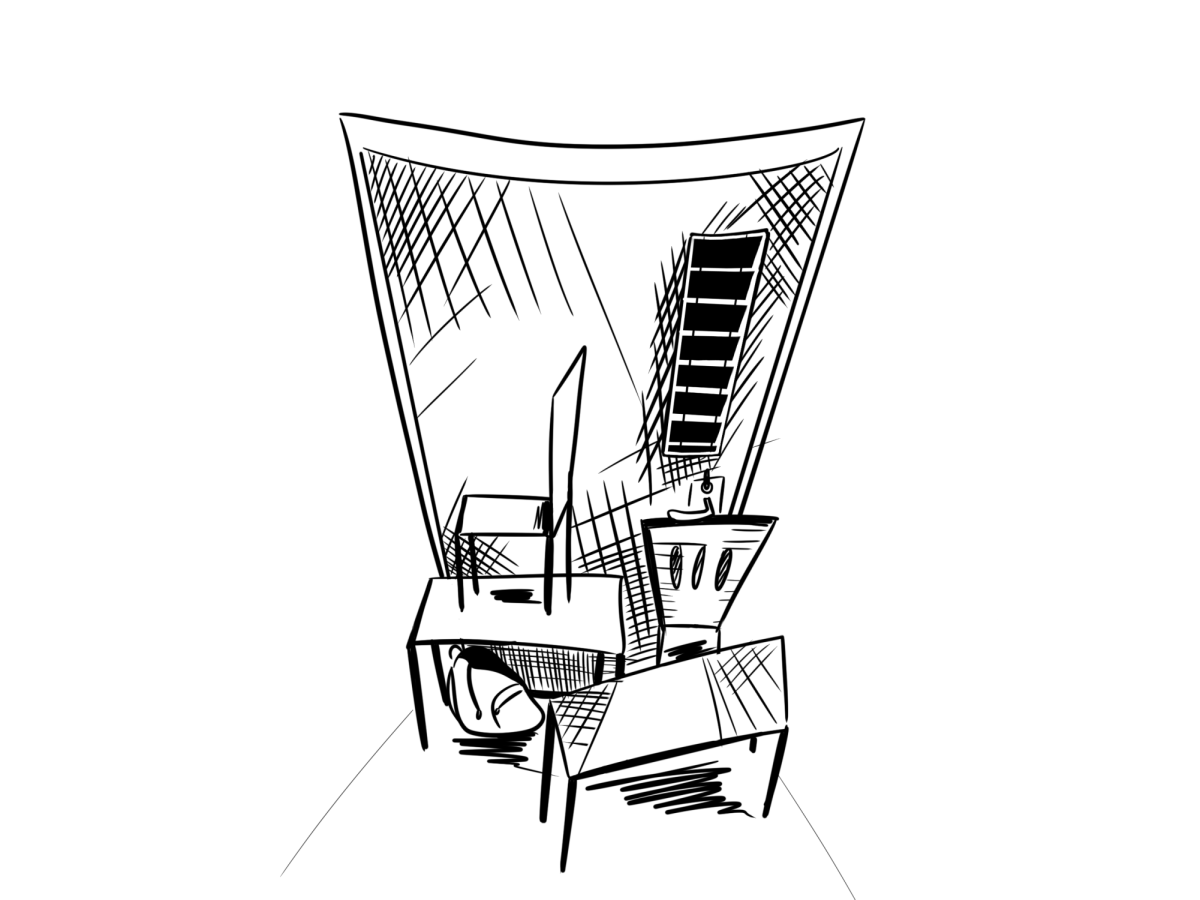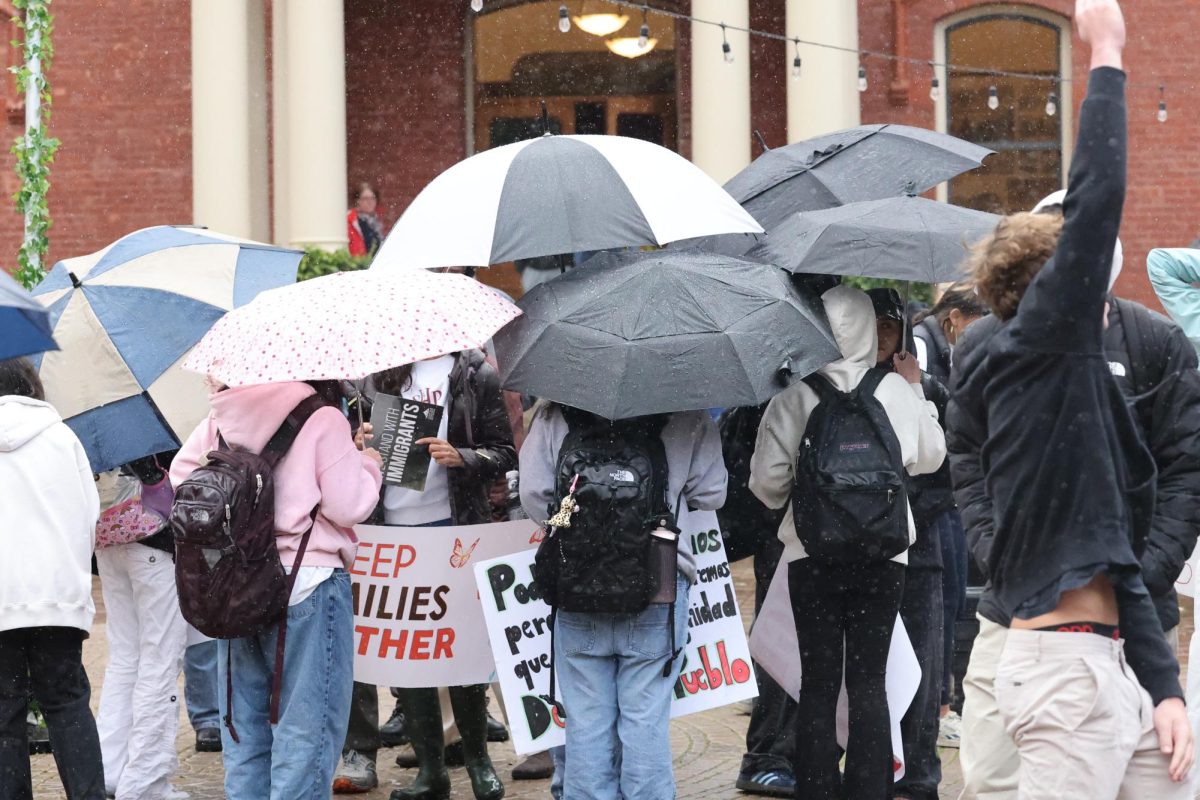“Education is not the learning of facts, but the training of the mind to think.” Those were the words of Albert Einstein, and while he has been dead for over half a century, they still ring true today. But, in a politically divided country with many issues taught in schools being considered contentious, it is difficult to know where the line is when it comes to teachers sharing their opinions. Regardless, one thing is clear: teachers, as authority figures, should not express their political views in school.
In an interview, SHP Social Science Teacher Ms. Serene Williams made clear that SHP’s status as a mission-driven school makes it so that “there’s a particular [educational] perspective, and [teachers] teach to the mission.” As such, she recalls times when “the school principal has told us really clearly to share our political opinion and be transparent about it, and be on the side of justice and things like that. And there have been some times that we have been told not to do that.”
Williams went on to note that “there’s no clear law, like in our teaching handbook, or something that really clarifies this, and so different teachers interpret it differently. But [she] always feel[s], as a government teacher, that [such a policy] doesn’t apply to [her]. Especially as an AP government teacher, [she believes educators] should teach what students need to know in terms of the framework of the College Board.” She emphasized throughout the interview that AP teachers follow stricter curriculums, which leave less room for teachers to express their opinions.
According to Williams, extent of expressing personal beliefs is a topic of debate amongst many high school government teachers. “Half of them are like, ‘straight up, this is what I think.’ Most of those people are public school teachers. They have unions. They’re like, this is what it is. The union says I can do this.” She expressed that she, herself, is not comfortable with that approach.
Williams noted that, in her experience, the main concern she has heard is that “the conservative voice [is being] stifled. Or if [students] have a teacher of a certain political persuasion, they [feel that they] have to write in a way… that [is] consistent with that persuasion to get an A.” She explained that faculty have discussed this a lot, and agreed “that [it] is unacceptable for students to feel that way.”
Other teachers at SHP, including Social Science Teachers Mr. Ben Hunter and Ms. Michele Rench, as well as Religious Studies Co-Department Head Mr. Scott McDade, echoed Williams’ stance.
Hunter emphasized that “the first goal as a teacher, [and] as a school, is [to ensure] that our students…feel comfortable about presenting their views in class.” In his opinion, “it doesn’t matter what the teacher says or does, as long as students feel comfortable in the classroom.” Accordingly, Hunter says that “if a student asks [him what his political views are, he] will tell them,” but he tries to remain unbiased when teaching. He also mentioned that his approach differs across grade levels. He said, “seniors are going to be in college, so they should be able to express their views,” but freshmen “haven’t explored the political world as much as juniors and seniors… and they’re going to be more sensitive about the classroom environment.”
Like Hunter, Rench is an honors seminar instructor, meaning both of them have more flexibility in their curriculum. In light of this, Rench explained that her work is to educate the student and allow them to formulate their own views, saying, “I don’t express political opinions, but… I think it’s important to discuss the issues and let a student decide their political opinion based on the issues.”
Similarly, McDade said that while he doesn’t share his political opinions, he does “share the values [he] holds” with his students. He stated: “If I’m an authority figure, or even if I’m not [but] you like and respect me, then I’m doing [you] a disservice if I don’t provide context to issues or beliefs that I hold.” He expressed that, as a high schooler, he had a teacher who he thought was the “coolest person [he] ever met;” so, if he had voiced an outlandish opinion, McDade might “have at least considered ‘hm, maybe he knows something I don’t know.’” Furthermore, as a religion teacher, McDade mentioned that the RSCJ and the Catholic Church have a say in the curriculum of religious classes at SHP. If he expressed something that was the “antithesis of what the Catholic Church states as its belief, then maybe someone in the RSCJ or the archdiocese would have an issue with that.” Otherwise, he articulated that there is not much intervention by these institutions in regards to expressing political beliefs.
In addition to acknowledging these teachers’ views, it’s also important to consider that high school students are in the middle of a fundamental period of growth in their lives. It is now that students are beginning to shape their judgements, values, and opinions — students are growing up and becoming different from our family and community members. But, while students are learning what it is to be individuals, they face incredibly challenging times, and figures of authority (like teachers) remain important sources of security.
It is a teacher’s job to present students with facts and impart knowledge to them. Therefore, when teachers express their political views in a classroom setting, it is easy for students — in a stage of their life characterized by instability and change — to confuse the opinions of their teachers as fact, or, at the very least, a principle they should take into account. In her interview, Williams expressed this perfectly: “a lot of times,” she said, “government students are hearing one message at school [and] a different message at home… This happens a lot. And, as a sixteen [or] seventeen-year-old who’s brand new to learning politics, that’s a lot to navigate.”
Teachers have undeniable power over their students — they control their grades, school life, and what information they learn. So, it is wrong for a teacher to use their position of power to impress their opinions upon their students — even unintentionally, and however well-meaning. And, like Hunter said, if a student truly wants to know their educator’s political beliefs, it’s easy enough for them to have an individual conversation with their teacher. The problem is when students are swayed one way or another without their understanding.
In the words of Rench, “I respect the independence of the student thinker. My job is to present as much information on the issues and then the student makes up their own mind.” I hope all readers of this article take these words to heart. Again, it’s like Einstein said — education is the training of a student to think, not to mirror the thinking of their teachers. The job of the teacher is to teach; the job of the student is to learn. I hope all students can understand that our opinions can be shaped in different ways, and that we have the ability to reject outside influence and come to our own conclusions with the support of our teachers.
Why Teachers Should Not Express Political Views at School
0
More to Discover
About the Contributor
Livia Valentine ‘26, HeartBeat Editor-in-Chief









